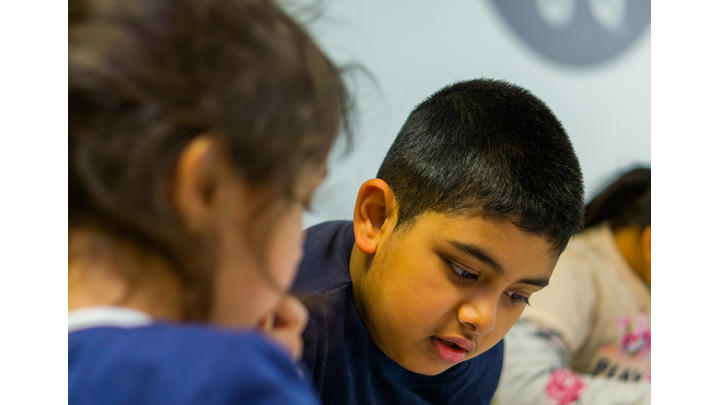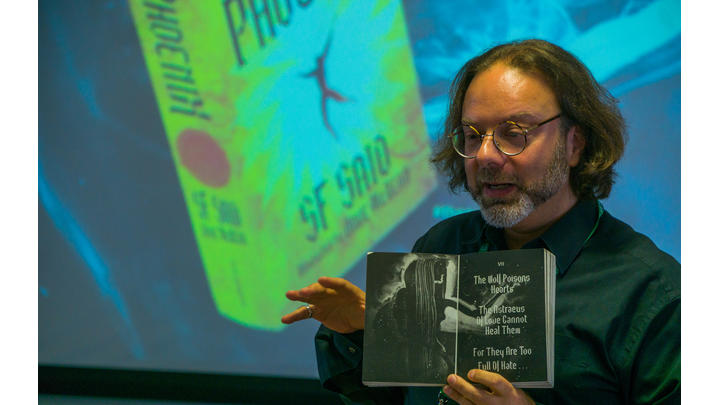'The library was my portal to a new world' Bobby Seagull on libraries for World Book Day
Mar 06, 2019

How did you discover your local library as a child?
The east London council estate I grew up on was quite far away from the local library, so a mobile library used to visit nearby. It was a bit like an ice cream van, but the treats were books! But our dad took all of his boys to East Ham library every Saturday. We spent several hours sprawled on the floor, voraciously absorbing books. We would usually return home with a shopping trolley full of borrowed books, just in time for the final football scores on the BBC (and sometimes a disappointing West Ham result!)
What did your local library mean to you when you were growing up?
The library was a place for us to discover everything around us. If we wanted to find out about South American rainforests, the engineering marvels of the Victorian era or read children’s fantasy literature, the library was my portal to a new world. The local library opened my mind and eyes to so many possibilities. All of us in the family had library cards. Mum, dad and my brothers would prize our library cards just much as people might prize their credit cards!
What did you use your local library for?
Most of the reading didn’t have a particular purpose per se, but was predominantly for enjoyment and the sheer joy of finding out about new things. However of course, I would use the library to help with school projects such as the planets and the Romans.

How do you think your life would be different if it wasn’t for libraries?
I was fortunate to have a father that valued the importance of reading, so sometimes as a treat, we would visit the local charity shops and WHSmith to buy some books for our home collection. But it was the library that provided the bedrock of our weekly reading. Were it not for this physical venue to go and be inspired by books, my passion for reading might not be quite what it is today.
Do you still get the chance to visit your local library now?
If I’m at home in East Ham on a Saturday morning, I have a routine. I will go to East Ham Leisure Centre for a circuits class with an amazing instructor we call Sergeant Pain (Dave MacQueen) and then I’ll go to the library afterwards to read. The librarians will notice if I’ve been away for a few weeks!
If you had to convince a 10 year old to visit their local library – how would you do it?
While you have the world at your fingertips on your computers, it is easy to get lost on the internet. With a physical library, you can quite literally see the world in front of you – the geography section, the science section, the non-fiction, the sports section and so on. This means that it might be easier to find something that would pique your interest.
What’s your hope for the future of libraries in the UK?
Comedian turned bestselling children’s author David Walliams recently said if he were prime minister, he would 'improve access to reading and safeguard libraries'. Libraries in England have had funding slashed for five consecutive years and this is a worrying trend. Reading changed my life and I would urge those in power to ensure that we give our children (and adults) public spaces to read.

What kind of reading do you do now?
I enjoy reading non-fiction such as the popular Yuval Hariri work Sapiens which traces the path of humans, right from our origins to our future. Books that make me think about where the future of mankind is heading are high up my list.
Obviously as a maths teacher, I enjoy reading books that continue to foster my love of the subject. The legendary maths TV presenter Johnny Ball’s latest work Wonder Beyond Numbers and mathematician Dr Eugenia Cheng’s The Art of Logic are currently on my shelf – both signed copies!
Which character in literature would you like to be for a day?
My dad was so inspired by reading the 1970s Richard Bach inspirational novella Jonathan Livingston Seagull that he gave me that surname, Seagull, from birth. The novella is about Jonathan Livingston, who is trying to find meaning beyond the regular daily routine of fellow seagulls, and tries to learn about life and flight. He then tries to spread his love for flight with other seagulls. As my mission is to inspire others to learn to love reading, learning and maths, I would like to feel what pushed Jonathan Livingston Seagull to continue on his mission.
What novel do you wish you had written?
As a maths teacher, friends recommended I read Mark Haddon’s book turned stage play The Curious Incident of the Dog in the Night-Time. It is a first-person narrative of a 15 year old boy who describes himself as “a mathematician with some behavioural difficulties”. This book manages to appeal to both adults and children. I would love to write fiction that is steeped in mathematics and my love for learning, but can excite a broad audience.
If you could hang out for an evening with any writer in history – who would you choose?
As a child, Roald Dahl was very popular in my school. His fiction delighted audiences, both children and my teachers, with my favourite being Matilda. I have written a couple of books, with my most recent being The Life-Changing Magic of Numbers, but had trouble sticking to my desk! I would like to talk to him about how ideas came to him and how he disciplined himself to write. This will be useful as I continue to want to write more books.
And finally, how will you be celebrating World Book Day?
For those that wake up by 6.50am, I'll set a books based puzzle for BBC Radio Four's Puzzle For Today. And in case my students don't wake up in time for my books puzzle, I'll set it as a starter activity to the lesson when they come to my lesson!
Bobby Seagull was the enormously popular contestant on University Challenge who went on to co-present (with Eric Monkman) The Genius Guide to Great Britain on BBC2. He is studying for his doctorate in Maths Education at Emmanuel College, Cambridge while teaching at a secondary school in East London. He has just published his book The Life Changing Magic of Numbers.
World Book Day is on Thursday 7 March 2019.
